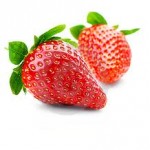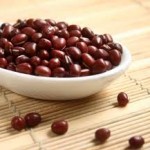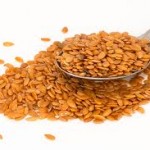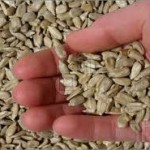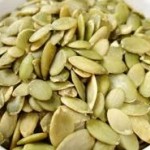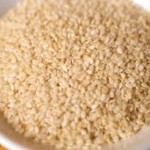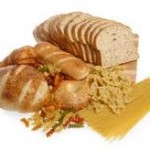 It is never to late to start a healthy habit. If you grow up like I did eating the Standard American Diet (SAD) you probable have some room for improvement. Most Americans are eating over 35 grams of sugar a day. This works out to 15 pounds a year per person. To lose weight a person has to eat 15 grams or less a day. Most of this sugar is hidden in many of the food you are eating right now.
It is never to late to start a healthy habit. If you grow up like I did eating the Standard American Diet (SAD) you probable have some room for improvement. Most Americans are eating over 35 grams of sugar a day. This works out to 15 pounds a year per person. To lose weight a person has to eat 15 grams or less a day. Most of this sugar is hidden in many of the food you are eating right now.
Unfortunately not everything we put in our body is beneficial to our health. Food and drink is very important to our daily survival. A good beverage and a good meal is an understatement that cooking for a man is a good way to win his affections. There are many food poisons that we consume on a daily rate that are dangerous to our arteries. Here a few of them.
1. Avoid Hydrogenated Oils
Hydrogenated oils are processed oils that should be avoided. These oils do not exist in  nature and our bodies have a hard time digesting them. Rectum and colon cancer has been attributed to too much daily consumption. Avoid them at all costs to your health. Hydrogenated oils are in so many foods out there. They inhibit the normal metabolism of the body which can lend to long term damage as well as cardiovascular diseases. Trans fat also called partly hydrogenated oil should be looked at as a poison and never eaten throw it away.
nature and our bodies have a hard time digesting them. Rectum and colon cancer has been attributed to too much daily consumption. Avoid them at all costs to your health. Hydrogenated oils are in so many foods out there. They inhibit the normal metabolism of the body which can lend to long term damage as well as cardiovascular diseases. Trans fat also called partly hydrogenated oil should be looked at as a poison and never eaten throw it away.
2. Start An Exercise Regimen
Start an exercise program and get the body going. Where do I begin is a usual question and will I stick with it is another. It’s a great way to lose weight and get muscle tone especially  for most of us – who at work sit at a computer all day. Find something that you can stick to, and enjoy. Thai chi, yoga and hiking or just going for a walk are great places to start. Thai chi and yoga will help get the body flexible, relax you strengthen your circulation and get your heart rate to where you want it. Everyone can find some type of exercise to do.For example you could use the stairs in your house. Going up and down the stairs 10 times is a great way to exercise. If you can’t do it ten times do it three or four times, working up to ten times. If you have bad knees sit in a chair and work your upper body with some dumb bells don’t have dumb bells use soup cans that are full . Our bodies are designed to move and work. When they are worked then they don’t they fall apart. Do your body a favor and exercise it.
for most of us – who at work sit at a computer all day. Find something that you can stick to, and enjoy. Thai chi, yoga and hiking or just going for a walk are great places to start. Thai chi and yoga will help get the body flexible, relax you strengthen your circulation and get your heart rate to where you want it. Everyone can find some type of exercise to do.For example you could use the stairs in your house. Going up and down the stairs 10 times is a great way to exercise. If you can’t do it ten times do it three or four times, working up to ten times. If you have bad knees sit in a chair and work your upper body with some dumb bells don’t have dumb bells use soup cans that are full . Our bodies are designed to move and work. When they are worked then they don’t they fall apart. Do your body a favor and exercise it.
3. Get on a Garlic kick
Garlic is Mother Nature’s natural cleanse. It helps rid the body of unwanted accumulations such as parasites and yeast. As you clean the inner body digestion and circulation of blood and 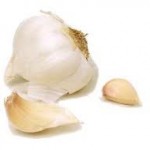 oxygen improves and you will start to look and feel a lot better. The great thing is garlic can be used in many dishes to spice up your health. Garlic provides support to the cells,organs, and systems that keep the body healthy. It will encourage healthy circulation, supports healthy liver function,enhances immune system response,promotes healthy lung function,helps maintain normal cholesterol and triglyceride levels that are already in normal range and provides antioxidants. Use lots of garlic in your diet. For those that don’t like the tast of garlic I carry a whole food garlic in a capsule form.
oxygen improves and you will start to look and feel a lot better. The great thing is garlic can be used in many dishes to spice up your health. Garlic provides support to the cells,organs, and systems that keep the body healthy. It will encourage healthy circulation, supports healthy liver function,enhances immune system response,promotes healthy lung function,helps maintain normal cholesterol and triglyceride levels that are already in normal range and provides antioxidants. Use lots of garlic in your diet. For those that don’t like the tast of garlic I carry a whole food garlic in a capsule form.
4. Swiss Chard
One of the most popular greens in Europe and nutritious as well, it’s quick to prepare and eat. It’s delicious sautéed in a small amount olive oil with garlic and crushed red pepper. Put it in your salad or add it to your smoothie it is also great steamed. Swiss chard is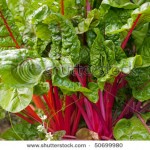 high in vitamin A, K and C. It is also rich in minerals, dietary fiber, protein there are many phytonutrients in Swiss chard. Vitamin K is great for bone health. It is high in B-complex group such as folate, niacin, vitamin B6 (pyridoxine), thiamin, pantothenic acid that are essential for cellular metabolic function. Swiss chard is one of the most powerful anti-cancer, antioxidants around. It’s a super green from nature. It is great in boosting the immune system, digestion and cleansing the system. If kept in your diet on a regular bases it has been found to prevent osteoporosis, low iron (anemia), vitamin A deficiency and believed to protect against cardiovascular disease and colon and prostate cancer. Get Swiss chard in your diet daily.
high in vitamin A, K and C. It is also rich in minerals, dietary fiber, protein there are many phytonutrients in Swiss chard. Vitamin K is great for bone health. It is high in B-complex group such as folate, niacin, vitamin B6 (pyridoxine), thiamin, pantothenic acid that are essential for cellular metabolic function. Swiss chard is one of the most powerful anti-cancer, antioxidants around. It’s a super green from nature. It is great in boosting the immune system, digestion and cleansing the system. If kept in your diet on a regular bases it has been found to prevent osteoporosis, low iron (anemia), vitamin A deficiency and believed to protect against cardiovascular disease and colon and prostate cancer. Get Swiss chard in your diet daily.
5. Decrease Your Refined Fat Intake
Your health depends on the good fats you consume. The risk of heart disease and clogged arteries increases with the daily intake of excessive bad fats, saturated fats. Unclog your arteries by 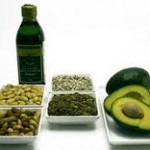 adding unsaturated fats like omega-3 fatty acids. Omega-3 fatty acid benefits are numerous especially in reducing heart disease. Be careful not to use a lot of refined oils like olive. Most oils are refined (processed) which will concentrate the fats. The fats that are found in refined oils are about 16% saturated fat (the bad fats). I know most people have been told that oils are good for you, they are wrong. Keep your oils to no more than a table spoon a day, if you are going to use oil. Where you need to get your healthy fats from is from nuts and seeds. One tablespoon of flaxseeds a day will give you all the omega-3 fatty acid you need for the day.
adding unsaturated fats like omega-3 fatty acids. Omega-3 fatty acid benefits are numerous especially in reducing heart disease. Be careful not to use a lot of refined oils like olive. Most oils are refined (processed) which will concentrate the fats. The fats that are found in refined oils are about 16% saturated fat (the bad fats). I know most people have been told that oils are good for you, they are wrong. Keep your oils to no more than a table spoon a day, if you are going to use oil. Where you need to get your healthy fats from is from nuts and seeds. One tablespoon of flaxseeds a day will give you all the omega-3 fatty acid you need for the day.
6. Consume Cruciferous Veggies
Nrf2 or a normally protective protein which is found within our systems was inactive in the arteries that are disease prone until a chemical called Sulforaphane was identified. And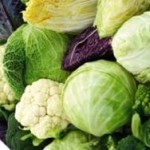 it can be found in broccoli sprouts, which, of the cruciferous vegetables, or cabbage family of vegetables, have the highest concentration of sulforaphane. It is also found in cauliflower, bok choy, kale, collards, Chinese broccoli, broccoli raab, kohlrabi, mustard, turnip, radish, arugula, and watercress. Eat them raw and start your protection against heart disease through the prevention of atherosclerosis. Eating your veggies is also very helpful in the fight against cancer and diabetics.
it can be found in broccoli sprouts, which, of the cruciferous vegetables, or cabbage family of vegetables, have the highest concentration of sulforaphane. It is also found in cauliflower, bok choy, kale, collards, Chinese broccoli, broccoli raab, kohlrabi, mustard, turnip, radish, arugula, and watercress. Eat them raw and start your protection against heart disease through the prevention of atherosclerosis. Eating your veggies is also very helpful in the fight against cancer and diabetics.
7. Eat Oatmeal
Have you had your oats today? Oats have the highest amount of protein as well as containing avenanthramides(a substance that kills or inhibits the growth of micro-organims) 10 to 30 times more than any other oat compound, which is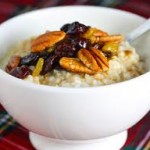 found in the whole grain and in the outer regions of the kernel. They contain soluble fiber that can reduce LDL cholesterol. Oatmeal functions as an antioxidant reducing heart disease, colon cancer and the reduction of clogged arteries.
found in the whole grain and in the outer regions of the kernel. They contain soluble fiber that can reduce LDL cholesterol. Oatmeal functions as an antioxidant reducing heart disease, colon cancer and the reduction of clogged arteries.
8. Take Whole Food Vitamin E
Vitamin E can help against the narrowing of the arteries. Vitamin E is best known as an antioxidant and used as oil would be considered a quick way to remedy any deficiency you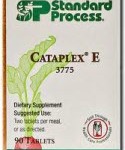 may be trying to get under control. Cataplex E from Standard proceess would be a true whole food vitamin E. Most vitamin E on the market are what they call fractional vitamins. A fractional vitamin only has a piece of the vitamin in them. In this case with vitamin E are would only be one tocopherol usually stated as alpha tocopherol. There are seven tocopherol in a whole food vitamin E this would be a complete vitamin E.
may be trying to get under control. Cataplex E from Standard proceess would be a true whole food vitamin E. Most vitamin E on the market are what they call fractional vitamins. A fractional vitamin only has a piece of the vitamin in them. In this case with vitamin E are would only be one tocopherol usually stated as alpha tocopherol. There are seven tocopherol in a whole food vitamin E this would be a complete vitamin E.
Vitamin E can help in the damage to the arteries caused by fatty foods and life long bad diets. Sunflower seeds and sunflower oil as well as pumpkin seeds are rich in whole food vitamin E. Vitamin E helps with malabsorption which is difficulty digesting or absorbing nutrients from food. Whole food vitamin E help with tissue repair, pituitary imbalance,
Healthy skin and hair are some of the benefits in consuming foods rich in vitamin E. Vitamin E can be great protection against cancer.
9. Use Apple Cider Vinegar
Apple Cider Vinegar’s is an ancient holistic remedy. One of its many benefits is its ability to clean out your arteries. It is great for the circulatory system. The potassium found in 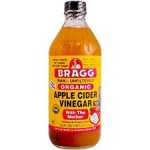 Apple Cider Vinegar
Apple Cider Vinegar
Research has shown that apple cider vinegar (ACV) is a good source for potassium. ACV has benefited many senile people experiencing clogged arteries. Studies have proven that the quality of lives of the senile elderly can be restored once toxic poisons are flushed out of their bodies. The potassium in ACV cleans out these clogged arteries from plaques, the same way water and vinegar cleans dirt from windows. Not only this, apple cider vinegar is also known to lower cholesterol levels and blood sugar, factors that may lead to heart diseases.
10. Lecithin
Lecithin is produced within our bodies, it is found in our heart, liver and kidneys. It is needed for overall health maintenance and is utilized by every living cell in our bodies. It is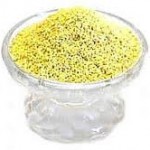 found in cabbage, cauliflower, garbanzo beans, soy beans, split peas, organic meat, seeds, nuts, & eggs. It helps in decreasing cholesterol which helps promote cardiovascular health and weight loss. It restores damaged livers and improves memory function. Prevents large deposits of fat from accumulating which allows blood to flow more smoothly where it once was clogged.
found in cabbage, cauliflower, garbanzo beans, soy beans, split peas, organic meat, seeds, nuts, & eggs. It helps in decreasing cholesterol which helps promote cardiovascular health and weight loss. It restores damaged livers and improves memory function. Prevents large deposits of fat from accumulating which allows blood to flow more smoothly where it once was clogged.
11. Cayenne Pepper
Add the right spicy zest to your diet. It has amazing effects, particularly promoting system which helps adjust pressure, which of course extends to the arteries. Cayenne helps rid the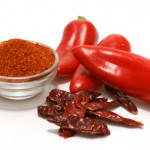 system of LDL Cholesterol and triglycerides. It aids in warming the body which helps in stimulating the assimilation and elimination. It fights inflammation and increases blood flow throughout the body.
system of LDL Cholesterol and triglycerides. It aids in warming the body which helps in stimulating the assimilation and elimination. It fights inflammation and increases blood flow throughout the body.
12. Read Food Labels
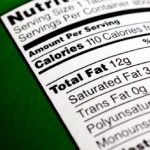 Learn to read labels. With the fast paced world we live in, this is reason for all of us to care what we put in our systems and just how much rest, food and exercise we get.
Learn to read labels. With the fast paced world we live in, this is reason for all of us to care what we put in our systems and just how much rest, food and exercise we get.
Think of yourself as a fine tuned instrument that deserves the proper care and you will enjoy the life you deserve.
For more information on how to get healthy and stay healthy, go to  www.youralternativedoctor.com Dr Foley is an Advance Nutritionist/ Chiropractic physician that specializes in nutritional rehabilitation of chronic and hard to manage health conditions. He has practiced over 24 years, lecturing weekly on how to get rid of belly fat, Hypothyroid, Hashimoto’s Autoimmune, Gluten Sensitivity and many other health topics. You can listen to Dr. Foley every Sunday at 2:00 PM central time on his radio show “The Natural Health Care Show” on 99.7 FM Nashville, TN or on the Internet “live” at www. 997wtn.com. Past shows are available on his website. Dr Foley takes a natural approach that is safe and effective. All health care programs are tailor made for the individual person. You can contact Dr. Foley at 5602 Nolensville Pike Nashville, TN 37211 Office Phone: (615) 333-0021 or drbjfoley@comcast.net or like us on facebook/drfoley or Twitter @drfoleybrian
www.youralternativedoctor.com Dr Foley is an Advance Nutritionist/ Chiropractic physician that specializes in nutritional rehabilitation of chronic and hard to manage health conditions. He has practiced over 24 years, lecturing weekly on how to get rid of belly fat, Hypothyroid, Hashimoto’s Autoimmune, Gluten Sensitivity and many other health topics. You can listen to Dr. Foley every Sunday at 2:00 PM central time on his radio show “The Natural Health Care Show” on 99.7 FM Nashville, TN or on the Internet “live” at www. 997wtn.com. Past shows are available on his website. Dr Foley takes a natural approach that is safe and effective. All health care programs are tailor made for the individual person. You can contact Dr. Foley at 5602 Nolensville Pike Nashville, TN 37211 Office Phone: (615) 333-0021 or drbjfoley@comcast.net or like us on facebook/drfoley or Twitter @drfoleybrian




